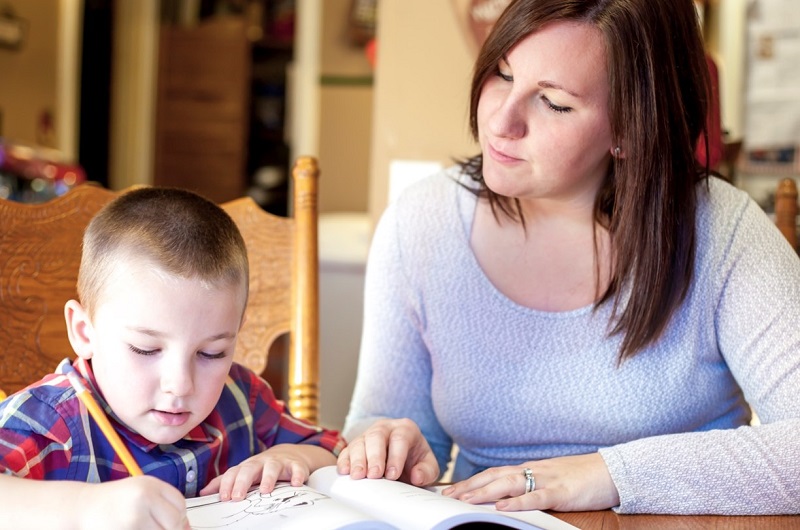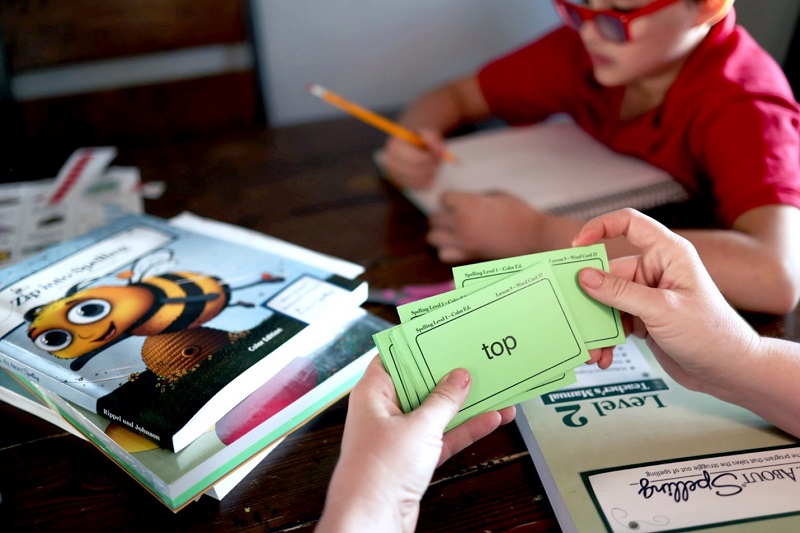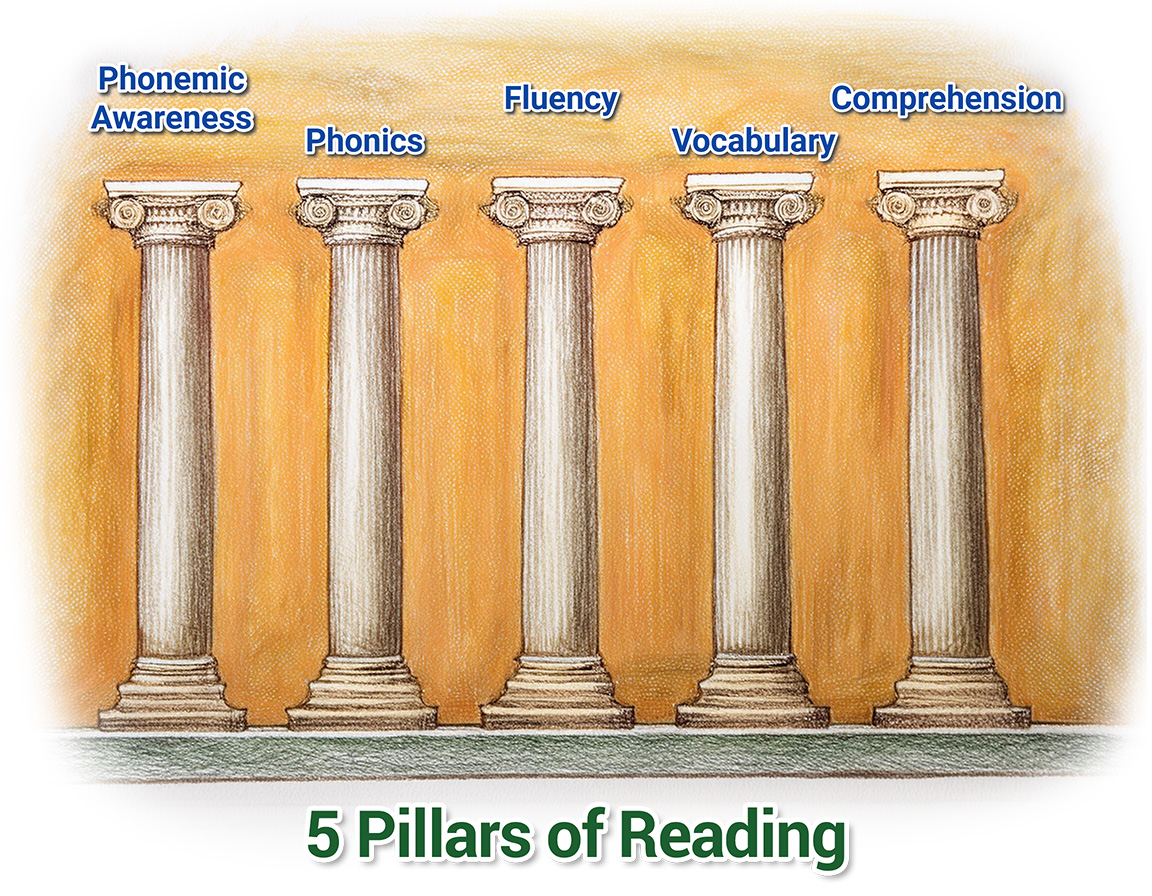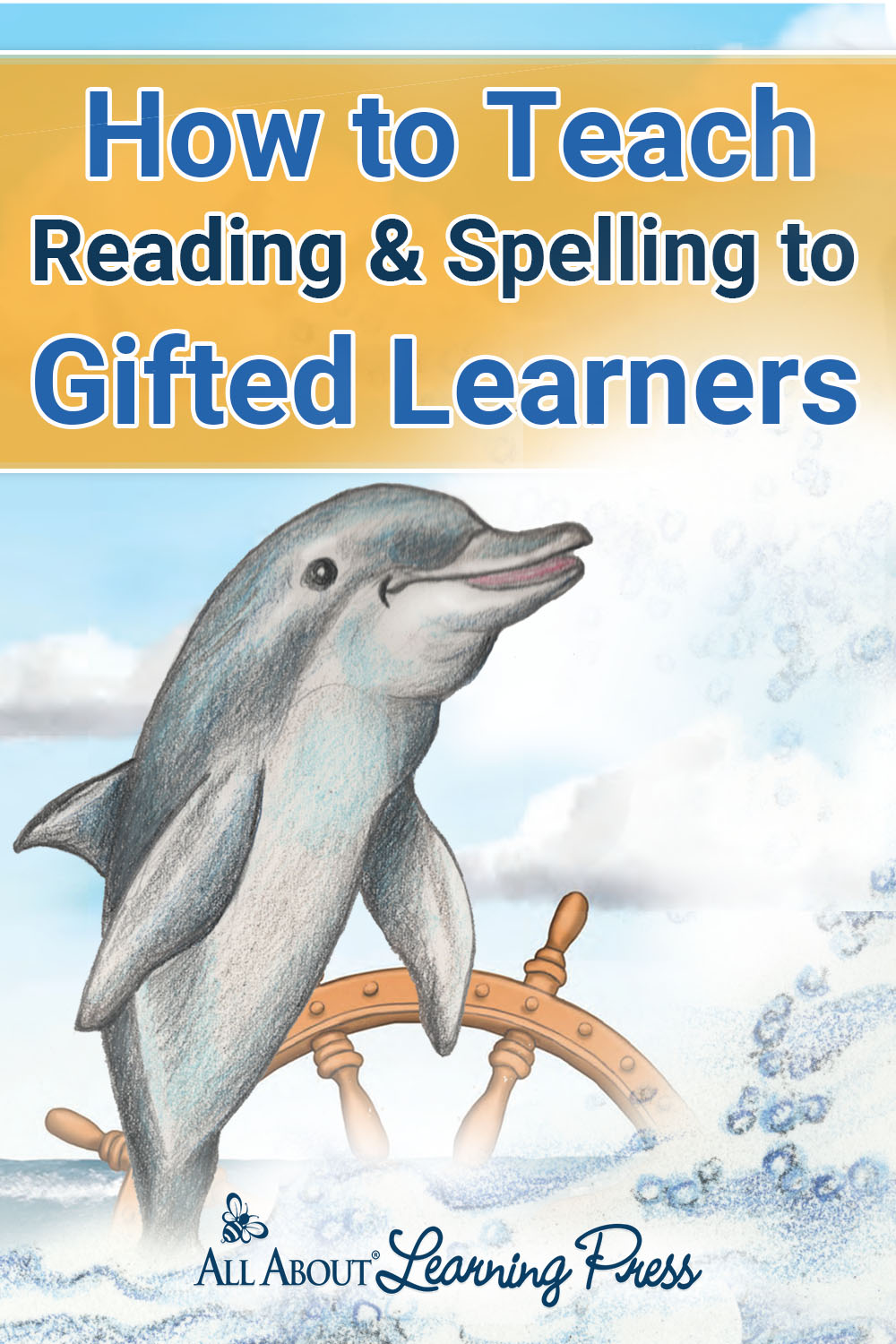How to Teach Reading and Spelling to Gifted Learners

If you’re new to homeschooling and have a fast learner, or if you’ve been teaching a gifted student and wonder if there’s more you could or should be doing, you’re in the right place. Gifted learners, often characterized by their rapid learning pace and advanced cognitive abilities, require tailored instructional strategies to meet their needs.
In this article, we’ll explore effective methods for teaching reading and spelling to gifted learners aged 3-10, focusing on structured phonics instruction, reading comprehension, and addressing learning gaps. Our goal is to provide you with practical recommendations to help you homeschool fast learners successfully.
Understanding Gifted Learners
Characteristics of Gifted Learners
Gifted learners often exhibit advanced cognitive traits including exceptional memory, quick learning, and a rich vocabulary. They are often intensely curious and have a preference for complex tasks. These characteristics can make traditional teaching methods less effective, as gifted students may become bored or frustrated with standard curricula.

It’s easy to assume that gifted learners don’t need help with reading and spelling because they often excel in many areas and grasp complex concepts quickly. However, this assumption can be misleading. Gifted learners might still struggle with specific skills or have gaps in their knowledge if they took the fast lane around even a few of the spelling rules that drive our language. Additionally, some gifted learners with advanced reading fluency skills may face reading comprehension problems, where they can read text fluently but struggle to understand and interpret the meaning. Their advanced abilities in other areas can mask these challenges, leading to a lack of tailored support. Recognizing and addressing these needs is crucial for their overall development and well-being.
Importance of Structured Phonics Instruction
Phonics Fundamentals
Structured, incremental phonetic instruction is the foundation of reading and spelling and the core of our All About Reading and All About Spelling programs. It involves teaching students the relationship between sounds and their corresponding letters or groups of letters and how these letters form words. For gifted learners, a structured phonics program taught to mastery is essential to prevent gaps in their phonetic knowledge.
Prevent Learning Gaps
Prevent spelling rules gaps in advanced learners with a few key strategies:
- Regular Assessment: Continually assess their spelling skills to identify any gaps early on and to allow for targeted intervention.
- Targeted Practice: Provide exercises that focus on specific spelling rules they struggle with.
- Multisensory Learning: Use a variety of learning methods, such as visual aids, auditory activities, and hands-on activities, to reinforce spelling rules.
- Consistent Review: Regularly review previously learned spelling concepts to ensure retention.
- Encourage Reading: Promote reading diverse materials, which can naturally improve spelling through exposure to a broader vocabulary.
- Personalized Support: Tailor your approach to their individual needs, ensuring they receive the right level of challenge and support.
- Teach to Mastery: Rules and concepts should be mastered before moving on to new concepts.
With gifted students, it’s natural to feel like “skipping” some of the fundamentals that already seem to be known. We understand that—you want your motivated reader to stay challenged and to continue progressing in their skills. While knowing the “essentials” may not seem all that essential to you or your child right now, remember that knowing the rules of our language makes us rulers of our language for life.

Reading Placement Test – Gifted readers may be able to skip levels in our All About Reading program. This placement test is an excellent indicator of the program level your student should take next.
Spelling Placement Test – Because we begin introducing spelling rules in Level 1 of our program, we recommend that most students start in Level 1 of All About Spelling and progress as fast as their skills allow them. As a mastery-based program, your student can go as fast as they are able or as slow as they need to go to learn a more complex concept. This placement test is an excellent indicator of the program level your student should take next.
Teaching Recommendations for Homeschoolers of Gifted Learners
Homeschooling gifted students offers a unique and wonderful opportunity to tailor education to your child’s specific needs and interests. Here are some flexible teaching approaches that can be effective:
- Project-Based Learning: Encourage students to explore topics deeply through multisensory projects that interest them. This approach promotes critical thinking and problem-solving skills.
- Interest-Led Learning: Let students pursue their passions and interests, integrating these into the curriculum to keep them engaged and motivated.
- Differentiated Instruction: Customize lessons to match the student’s learning style and level. This might include more complex problems or alternative assignments.
- Acceleration: Allow students to move through the curriculum at their own pace, advancing to more challenging material as they master concepts.
- Advanced Reading Materials: Provide advanced reading materials to keep gifted learners engaged and challenged. Let them choose books that interest them, challenge their reading and vocabulary abilities, and cover a variety of genres, including fiction, non-fiction, and poetry. This approach broadens their general knowledge and keeps reading interesting.
- Interactive and Engaging Activities: Incorporate hands-on, fun activities into homeschool lessons with free practice and review activities to maintain interest and motivation. Use educational games, technology, and hands-on projects to make learning fun and dynamic.
- Independent Learning: Encouraging independent learning fosters self-directed learning and autonomy. Allow your child to choose their own books and set their own learning goals. Provide opportunities for independent research and projects that align with their interests and strengths.
Enhancing Reading Comprehension Skills
The first sentence in our recent article, The Science of Reading – Fluency, is this:

Fluency, one of the five pillars of the Science of Reading framework on which our program is based, is a learned skill that is essential to achieving the ultimate goal of reading—comprehension.
For gifted readers and spellers, reading fluency often comes easily, almost naturally. Their decoding-encoding automaticity enables them to read words and sentences accurately, quickly, and with appropriate expression. Most importantly, reading fluency is what opens the door to reading comprehension, which is what reading is, well, all about.
Since your gifted reader’s mind doesn’t have to work on decoding and encoding words like most early readers, it is free to focus on meaning, relationships, and the connections between ideas. Instead of learning to read, they are now reading to learn.
Instructional Techniques to Build Reading Comprehension
Nurture your child’s reading comprehension skills using a variety of techniques that engage your child’s critical thinking and deepen their understanding of the text. Here are some expanded strategies:
- Questioning: Encourage your child to ask questions before, during, and after reading. This can include questions about the plot, characters, and themes. For example, “Why do you think the character made that choice?” or “What do you think will happen next?” This helps them stay engaged and think critically about the material.
- Summarizing: After reading a passage or chapter, ask your child to summarize the key points in their own words, either verbally or through writing. Summarizing helps them identify the main ideas and details, reinforcing their understanding and retention of the material.
- Predicting: Before starting a new section, encourage your child to make predictions about what might happen next based on the information they have read so far. This not only keeps them engaged but also helps them make connections and anticipate outcomes, which enhances comprehension.
- Visualizing: Ask your child to create mental images of the scenes, characters, and events described in the text. This can be supported by drawing or using graphic organizers. Visualizing helps them better understand and remember the story.
- Connecting: Encourage your child to make connections between the text and their own experiences, other books they have read, or events in the world. This can deepen their understanding and make the reading more relevant and meaningful.
- Clarifying: Teach your child to identify and clarify any confusing parts of the text. This can involve looking up unfamiliar words, re-reading difficult sections, or discussing the text with you. Clarifying ensures they fully grasp the material.
- Discussing: Engage in discussions about the text. Ask open-ended questions that require thoughtful responses and encourage your child to express their opinions and interpretations. This promotes deeper analysis and comprehension.
Take advantage of this special opportunity to start developing strong reading comprehension skills in your child. You are not only helping them develop valuable skills, you are also fostering a lifelong love of reading and learning.
Summary of Key Points
In summary, teaching reading and spelling to gifted learners requires a tailored approach that addresses their unique needs. Structured phonics instruction, enhanced reading comprehension, and targeted interventions are essential components of effective literacy education for gifted learners. Our Orton-Gillingham approach and mastery-based programs provide additional benefits by ensuring comprehensive understanding through multisensory learning and allowing students to progress at their own pace.
Final Thoughts
As homeschool parents, your goal is to provide your gifted learners with the tools and support they need to reach their full potential. By implementing these strategies and with encouragement and patience, you can create a learning environment that is both challenging and supportive, helping your child thrive.
If you have any questions or need assistance, feel free to reach out to us on our Contact Page. We are happy to help!
Was this article helpful? What teaching techniques or strategies do you find most helpful for your gifted student? Share your thoughts below and feel free to share this post with a friend.









Atalie
says:This was extremely informative! As a former “gifted” kid myself, it helps me understand what I may have benefitted from years ago and how I can pass that on to my daughter. We love your reading program!!
Robin
says: Customer ServiceAtalie,
It’s great to hear that All About Reading is working out well for you! I’m glad this article was informative for you.
Kayla
says:This was helpful. I have an advanced reader who struggles with spelling so I’m considering adding AAS for him next year.
Robin
says: Customer ServiceI’m glad this is helpful, Kayla!
Let me know if you have questions about All About Spelling or need help with placement or anything else. I’m happy to help.
Pamela Figley
says:This article was very helpful for my six year old grandson. He is currently working through level 3. He always wants to skip fluency pages because he doesn’t see the point but I found he does much better when he reads through them. He does love the games though so we use those often with fluency pages. Thanks for such great curriculum!
Robin
says: Customer ServicePamela,
I’m glad this was helpful. It sounds like you have made All About Reading work well for your grandson, and that’s great teaching!
Heather Thibault
says:I’ve used AAR Levels 1-4 for struggling readers with great success. They’re now flourishing with a love of reading. My third child is showing signs of being a gifted learner, and I am still planning to use AAR for her. The learning style may be different, but I know she will benefit from the strong foundation and understanding that AAR offers.
Robin
says: Customer ServiceHeather,
All About Reading is great for struggling, typical, and advanced learners!
Rachel Knobil
says:I have really appreciated how the All About Reading curriculum works for both my gifted and struggling readers. It’s so nice as a homeschool mom not to be switching between books and methods for the diverse needs of my kids.
Robin
says: Customer ServiceRachel,
Yes! That’s a great benefit of a program like All About Reading and All About Spelling.
Katy
says:Thank you for breaking this down! Reading is so essential and easily turns into a chore that the child can develop a disdain for that carries into adulthood. So hard to find that balance in teaching.
Robin
says: Customer ServiceYou’re welcome, Katy. Yes, reading is the core skill that all other learning hangs upon!
Lora
says:Great points! As a classroom teacher (and a homeschool mom), I definitely see the huge link between fluency and comprehension! I have a lot of students who struggle greatly with their fluency, and in turn their comprehension.
Robin
says: Customer ServiceThank you, Lora! Yes, fluency is essential to comprehension.
Stephanie
says:It is just as challenging to teach a gifted student as it is a student who struggles in a subject. Giftedness is it’s own struggle if things are not changed to what the student needs. And what was not mentioned is a student can be gifted in language but struggle to read because of decoding- but their comprehension or vocabulary is advanced for their age.
Robin
says: Customer ServiceSo true! Thank you, Stephanie. Gifted students are often not gifted equally in all areas, and it can be a challenge, but so worth it, to teach them where they are at in each.
Glo
says:Thank you for sharing this very useful information! It is extremely helpful. Just like your amazing Spelling program and the free resources.
Robin
says: Customer ServiceYou’re so welcome, Glo! Thank you!
Ashley Anderson
says:Great article . Love the Mastery Approach for my gifted homeschoolers .
Robin
says: Customer ServiceThank you, Ashley!
Katherine
says:Such a helpful advice. I’m thinking whether or not to skip detail phonetic instructions because she’s reading already.
Robin
says: Customer ServiceI’m glad this is helpful, Katherine. Let me know if you have specific question, though. I’m happy to help.
Analeea Elliott
says:Recommending to not skip fundamentals because they seem like they can is huge tip!
Robin
says: Customer ServiceThank you, Analeea!
Beverly
says:Amazing programs
Robin
says: Customer ServiceThank you, Beverly!
Mary
says:I really like the compression questions that accompany the stories the child reads.
Robin
says: Customer ServiceThank you, Mary!
Christina
says:“Instead of learning to read, they reading to learn.” I love that! Good advice. It can be very tempting to cut corners when a child is bored and it’s good to be reminded to work through it so we don’t miss something important.
Robin
says: Customer ServiceChristina,
We wouldn’t recommend keeping a bored child at lessons to the point that they learn to dislike learning. Rather, a gifted learner can often move through the material much quicker, skipping the review activities and such that most children need. They can still learn it without any of the boredom.
Vasha
says:Exactly. All students need to be consistently taught how to read fluently, even if they know how to say the words.
Robin
says: Customer ServiceThank you, Vasha.
Catherine
says:My grandson started reading fluently at the age of 2 but he did not communicate/speak at all not even mom or dad. He eventually started to say ma and pa when he was 3year and 4months. He’s 4 now, still read with comprehension but he will say something like ‘I sit in my brother ‘s lap’ or ‘Get of off me’. Any advice?
Robin
says: Customer ServiceCatherine,
It’s amazing how well your grandson is reading at such a young age!
As for his speech difficulties, that’s not really something we are experts in, but it does sound like he may be delayed. It it something to discuss with his pediatrician for a possible referral to a speech therapist.
Sarah
says:This was very helpful advice and knowing what to look for in my children. Navigating learning can be difficult and is so different between children.
Robin
says: Customer ServiceSarah,
I’m glad this is helpful. It’s so true that learning can be so different between children.